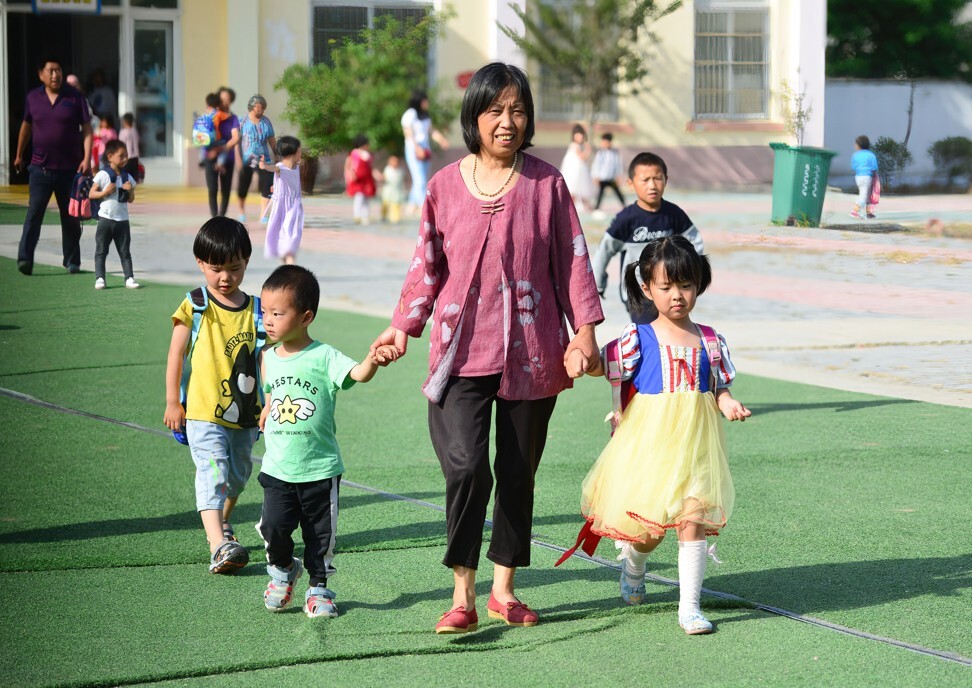
Not everyone in China is unprepared for Beijing’s three-child policy change, meet those planning for more babies
- China has relaxed its family planning rules, allowing families to have up to three children
- It follows an earlier relaxation of the rules that saw Beijing abandon the notorious one-child policy in 2015
Li Fangfang is waiting for a court verdict and an apology.
The 33-year-old woman from Hangzhou, in east China’s Zhejiang province, was fired from her government office job in 2020 for having a third child, breaking Chinese government policy at that time, despite being repeatedly warned by her supervisors.
Li has taken her former employer to court previously and is awaiting a verdict. With the new three-child policy, she and her lawyer believe the outcome will now be different. She has refused to settle.
“I wanted to prove what’s right and what’s wrong, and for my dignity,” Li told her lawyer, in a chat history seen by the South China Morning Post.
State news agency Xinhua polled 31,000 people after the policy change, finding just 1,443 of them were “ready” to have a third child, it was “on the agenda” for 213 respondents, while 828 others were “hesitant”.
The poll results disappeared not long after they were posted online.

But for some, the policy shift has rekindled hopes. There are those who insist on having multiple children, even with the threat of a heavy fine or the loss of their job. When the ban was lifted, some celebrated what they believed was a progressive step forward.
Some even went on to persuade people around them to have more children. One proudly said in an online group chat that he had prevented a friend from aborting her third child.
Li’s first two children were born in accordance with China’s former child policies. In 2020, during the Covid-19 outbreak, she found herself pregnant. At that time, it was difficult to get an abortion with strict quarantine measures, so she kept the child.
During that time, her supervisors repeatedly talked to her and told her to be ready to get fired if she had the child, Li said.
“But I begged and hoped they’d let me keep my job, I was willing to take any other punishment,” she said.

02:04
China expands two-child policy to three
She said she has never considered children a nuisance and that they brought her happiness. Besides, she thinks having a newborn is not only good for herself, but for an ageing country as well.
In one WeChat group of 500 people, Li was far from being alone. Many have had three or four children, even nine, in one instance, all before China’s policy shifted, and many more are celebrating the shift and looking forward to a third child.
A 48-year-old Shandong woman surnamed Zhang said she was the third child in her family as well, with two elder brothers in their 60s and 70s, and her mother aged 89.
“Right now my brothers don’t know much about the outside world, but I’m at my prime, I know about modern medical services and take care of my mother,” she said.
She saw the benefit of having a younger child at an older age.
Furthermore, in 2014, she came across the book Big Country with an Empty Nest, written by Yi Fuxian, senior scientist at the University of Wisconsin-Madison, exploring the aspects of an ageing population with decreasing numbers of newborns and saw the risks it posed.
“There will be more and more elderly and fewer and fewer of the young, it’s horrifying to think about,” she said, explaining that in an ageing society like Japan, the elderly had to work and there weren’t enough caretakers for them.
Currently, she has two children, a son born in the year 2000 and a daughter in 2017.
Even before China opened up to having a second child in 2015, she began preparing for birth, but her husband was afraid of getting fired and didn’t agree to a second or third child.
This time, even though it’s legal to have a third child, she believes she is getting too old to conceive. But still, she hopes for a miracle.
“My generation has been held back by the one-child policy,” she said.
Li said she felt it was meaningful to be a witness to history. She believes children bring more vitality and hope to society, and are not a burden.
“In today’s China, there’s not a single child that’s considered an extra,” she said.

.jpg?itok=H5_PTCSf&v=1700020945)